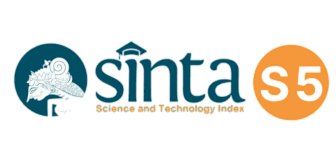Perspektif masyarakat mengenai politisasi PKS dalam lingkup pendidikan di Kota Bandung
Studi Kasus Politik PKS
Downloads
Politicization is a negative connotation for parties that carry out political campaigns through government advice or use government advice, such as schools, school children, places of worship, or government-owned buildings as allegedly happened in the city of Bandung. This study aims to find out the public's perspective on the politicization that occurs in Educational Institutions in order to be a lesson for other political parties in conducting campaigns. This learning is intended to see the perspective of the community that politicization in Educational Institutions is wrong and should not be done in accordance with the provisions of law number 7 of 2017 contained in article 280 paragraph 1 which states that campaigns are prohibited from being carried out in areas of government facilities, places of worship, and also places of education. This research uses a descriptive quantitative research method by spreading a digital questionnaire consisting of two variables to study people's views on political parties that politicize. The reason is, it can be seen that the public does not approve of the existence of political campaigns in the realm of Education, where education should not be smeared with political activity. In conclusion, political campaigns in the world of Education are not accepted and disliked by the public, the community even agrees that if there are some teachers who use their students for the purposes of political parties, then there should be revitalization and also the delivery of fines.
Copyright (c) 2024 Praventyasari Mutiara, Rachel Archita Salwa, Ainulia Pardicha, Victorio Kusumosidi, Vera Wijayanti Sutjipto

This work is licensed under a Creative Commons Attribution-NonCommercial-ShareAlike 4.0 International License.
- Copyright of this journal is possession of Editorial Board and Journal Manager, by the knowledge of the author, while the moral right of the publication belongs to the author.
- The formal legal aspect of journal publication accessibility refers to Creative Commons Atribusi-Non Commercial-Share Alike (CC BY-NC-SA), implies that publication can be used for non-commercial purposes in its original form (cannot be modified).
- Every publication (printed/electronic) are open access for educational purposes, research, and library. Other than the aims mentioned above, the editorial board is not responsible for copyright violation.












